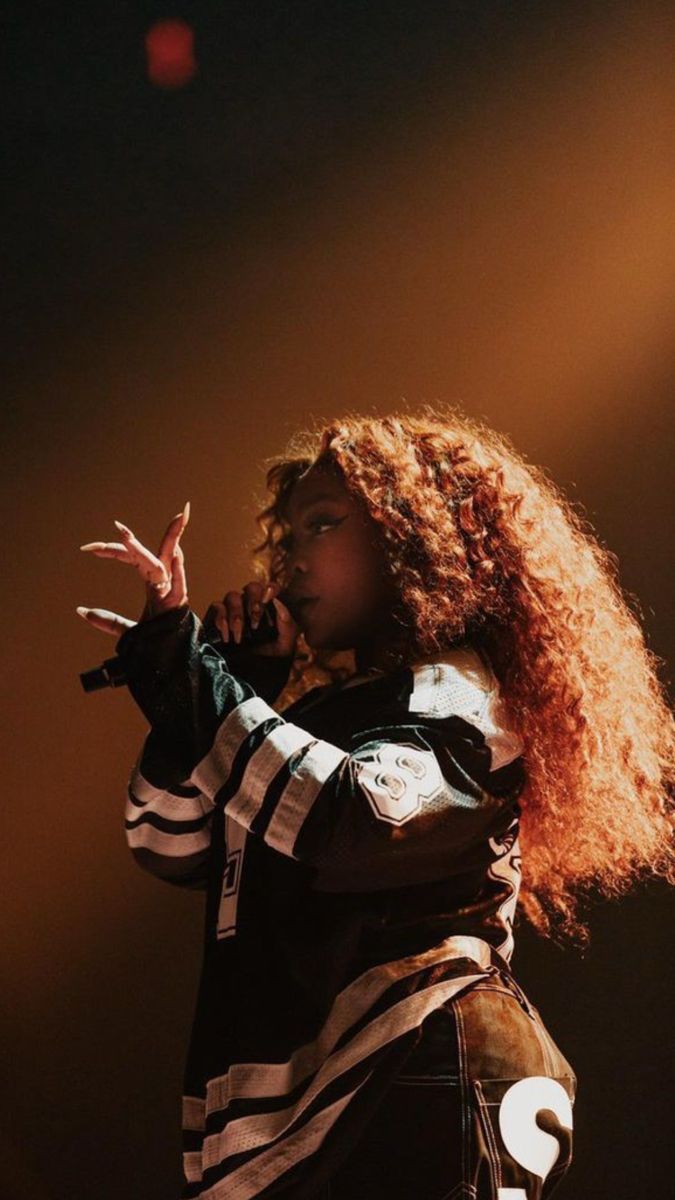“SZA’s Soulful Sound: How She Redefined R&B for a New Generation”
Introduction to SZA and Her Impact on R&B
SZA has emerged as a transformative figure in contemporary R&B, blending traditional elements with diverse styles to create a sound that resonates deeply with modern audiences. Born on November 8, 1989, in St. Louis, Missouri, and raised in Maple wood, New Jersey, SZA journey from a self-released EP to global stardom reflects her ability to push boundaries while maintaining the soulful essence of R&B. Her music, characterized by raw vulnerability, genre-defying production, and introspective lyricism, has redefined R&B in the 21st century.
SZA’s Unique Musical Style
SZA sound is a fusion of classic R&B, neo-soul, hip-hop, indie rock, and electronic influences, creating a genre-mixing style often labeled as alternative R&B. Her debut album, Ctrl, released in 2017, was a turning point for the genre, combining lush production with introspective lyrics that explore romance, insecurity, and self-discovery. Tracks like “Love Galore” and “The Weekend” showcase her ability to weave effortless vocals with contemporary beats, while songs like “Drew Barry more” introduce a lo-fi, indie-inspired aesthetic. Her 2022 album SOS expanded this palette further, incorporating elements of folk, grunge, and punk Her singing style, which ranges from sensual crooning to a rap-like flow, adds another layer of dynamism, making her music both intimate and expansive.
Lyrical Authenticity and Emotional Resonance
Sza most important contribution to R&B is her unwavering honesty, which resonates with listeners, particularly young women and marginalized communities. Her lyrics delve into personal struggles with self-image, relationships, and identity, delivering a raw, confessional style that feels like a conversation with a friend.
For example, in Ctrl’s “Normal Girl,” she addresses the pressure to conform to societal expectations of femininity, singing, “Normal girl, how do you be?” This vulnerability, paired with sharp wit, validates the experiences of Black women and others who feel caught between societal ideals and personal authenticity. Her 2022 track “Kill Bill” combines a catchy melody with deep, introspective lyrics about heartbreak and revenge By normalizing complex emotions, SZA has made R&B a space for authentic storytelling.
Redefining R&B for a New Generation
SZA work has redefined R&B by challenging its traditional boundaries and incorporating diverse musical influences. In contrast to the refined, mainstream R&B of the 1990s, her music embraces experimental production and unconventional song structures inspired by jazz, alternative rock, and hip-hop. Her collaborations with producers such as Thankyou and Carter Lang have created a sound that feels futuristic yet rooted in R&B’s soulful traditions.
For example, SOS’s genre-shifting—from the trap-influenced “Low” to the indie-rock-tinged “Fast”—reflects her refusal to be pigeonholed into a single genre. SZA herself has criticized the undermining of her music as R&B solely due to her race, arguing that artists such as Justin Bieber allow greater flexibility in the genre. This perspective highlights her role in advancing a broader understanding of R&B that embraces diversity and experimentation. His influence is evident in the rise of artists such as H.E.R., Steve Lacy and Frank Ocean, who similarly blend genres to create innovative R&B.
Cultural and Social Impact
Beyond her musical contributions, SZA’s influence extends to her representation of Black women and her advocacy for self-acceptance. Growing up in a predominantly white community and facing bullying after 9/11 due to her Muslim background, SZA’s music reflects her experiences as an outsider. Her refusal to conform to mainstream beauty standards—celebrating her natural hair and body—has challenged industry norms and inspired fans to embrace their individuality.
Songs like “Supermodel” address the intersectional challenges Black women face, and provide a voice to women struggling with societal pressures. Her openness about mental health and self-worth has also sparked conversations about vulnerability in music, which has made her a cultural icon of authenticity and empowerment. Her performances, such as the 2025 Super Bowl halftime show with Kendrick Lamar, further amplify her influence, demonstrating R&B’s relevance on a global stage.
Share this content:




Post Comment